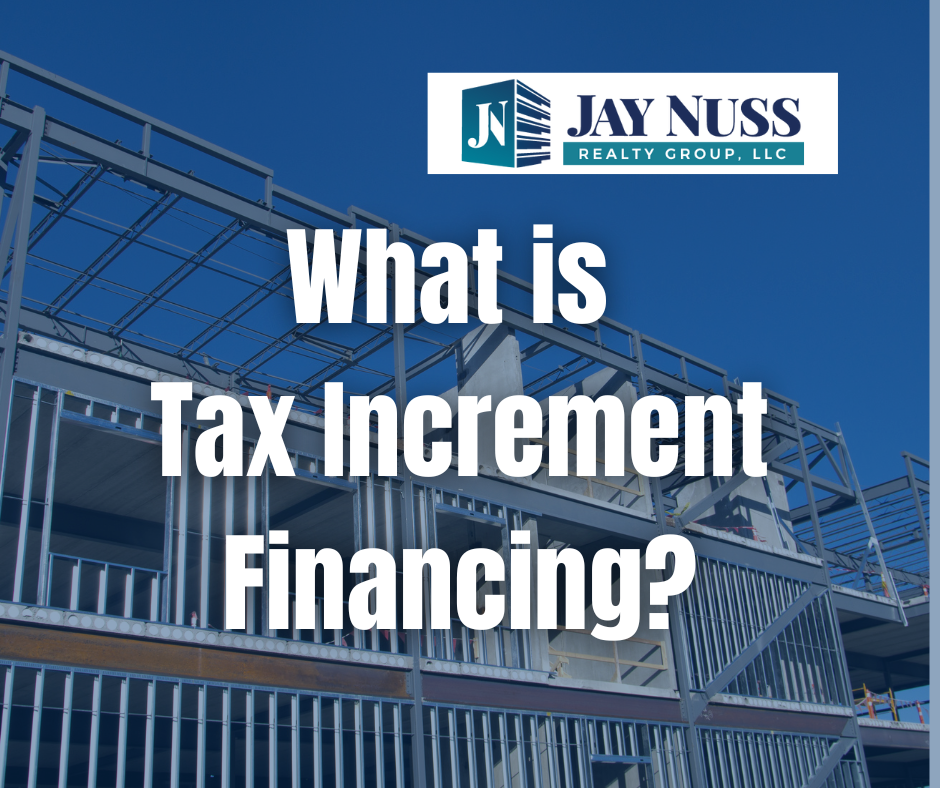What is Tax Increment Financing?
Real estate investors and developers are constantly seeking innovative ways to finance their property developments, particularly in areas that may be considered economically challenged. One of the most potent tools available for such projects is Tax Increment Financing (TIF). Let’s look at what TIF is, how it can be used to develop distressed properties and the specific TIF programs available in Massachusetts.
Understanding Tax Increment Financing
Tax Increment Financing (TIF) is a public financing method used by municipalities to stimulate economic development in a specific area. The basic principle of TIF is simple: it allows local governments to invest in public infrastructure and other improvements up front, then use the increased property tax revenue generated by the development to repay the initial investment.
The process begins when a municipality designates a specific area as a TIF district. The current property tax base in the district is then frozen. As new development occurs and property values increase, the incremental increase in property tax revenue is directed into a special fund. This fund is used to pay for public improvements or to reimburse developers for eligible redevelopment costs.
The beauty of TIF is that it doesn’t require new taxes; instead, it leverages future gains in taxes to finance current improvements.
Using TIF to Develop Distressed Properties
TIF can be particularly effective for developing distressed or underutilized properties. These areas often lack the necessary infrastructure or amenities to attract private investment. By using TIF, municipalities can make significant improvements that transform these challenging areas into attractive development opportunities.
One key use of TIF funds is to improve infrastructure. This might include upgrading roads, utilities and other public infrastructure, making the area more appealing to developers and businesses. TIF can also help fund environmental remediation efforts, turning contaminated brownfields into viable development sites.
In areas with historic significance, TIF can play a crucial role in preserving architectural heritage. Funds can be used to support renovation and adaptive reuse projects, breathing new life into old structures while spurring economic growth. TIF can also finance the creation of parks, plazas and other public amenities that enhance the overall appeal of the area.
Perhaps most importantly, TIF can be used as an incentive to attract major businesses or institutions that serve as catalysts for further development. By offering TIF as part of a comprehensive package, municipalities can entice anchor tenants that might otherwise overlook the area.
For developers and investors, TIF can significantly reduce the upfront costs and risks associated with projects in challenging areas, making otherwise unfeasible developments possible.
TIF Programs in Massachusetts
Massachusetts offers several TIF programs designed to encourage economic development and job creation. The two primary programs are Local Tax Increment Financing (Local TIF) and District Improvement Financing (DIF).
- The Local TIF program is administered by individual municipalities in partnership with the Massachusetts Economic Assistance Coordinating Council (EACC). This program allows for a property tax exemption on all or part of the increased value of the property for up to 20 years. It requires a TIF Agreement between the municipality and the property owner and must be approved by both the local legislative body and the EACC. To be eligible, a project must generate substantial new employment and private investment.
- District Improvement Financing (DIF) is similar to traditional TIF but offers more flexibility. Under DIF, municipalities can define a development district and a corresponding tax increment district. The tax increment can be used to fund public works, infrastructure and other improvements. Unlike Local TIF, DIF doesn’t require state approval, making the process more streamlined. There’s also no set time limit on the district, which can be particularly useful for larger-scale, long-term redevelopment efforts.
Considerations for Commercial Real Estate Developers
When considering potential TIF opportunities in Massachusetts, several factors should be taken into account. Location is crucial; TIF is most effective in areas with significant redevelopment potential. It’s important to identify municipalities with a history of using TIF or those actively seeking development.
The proposed project should align with the municipality’s economic development goals. Projects that create jobs, increase the tax base or address specific community needs are more likely to gain approval. While TIF can provide significant benefits, the underlying project must still be financially sound. TIF should enhance project feasibility and not be the sole determinant of a project’s viability.
Negotiation skills play a vital role in securing TIF agreements. The specifics of these agreements are often negotiable, and skilled representation can help secure more favorable terms for your clients. It’s also important to maintain a long-term perspective. TIF benefits accrue over time, therefore it’s crucial to help clients understand the long-term implications and benefits of participating in a TIF program.
Tax Increment Financing is a powerful tool for commercial real estate development, particularly for projects in distressed or underutilized areas. As the Massachusetts real estate market continues to evolve, TIF can play a crucial role in shaping the economic landscape of our communities.
For further information on this topic, please call us at 781.848.9400.

